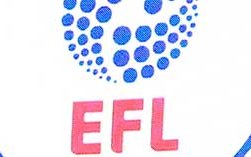U`s And Them? Maybe Not?
“Community Stadium? It`s more like ‘us` and ‘them` “ – Bob Russell, MP, MyFootball Writer Column.
The biggest wheeze of the week runs: Why do Colchester United and pop music have so much in common? Answer: They are both too commercial these days. Very good. Now fetch the trilby and spyglass. We`re going on another search for a football club`s wounded pride.
This is a glassy debate, of half-empty or half-full proportions. One of sides, too, if you subscribe to the view from Bob Russell, MP, who said recently on the somewhat sore subject of the U`s new ground: “Community Stadium? It`s more like ‘us` and ‘them`.”
Club verses fan? Yes, say some, claiming that a downturn in season-ticket sales this summer amount to one almighty snub from the faithful. ‘Just` 5,940 fans, not the anticipated 7,000, filed through the shiny electronic turnstiles for the first game at Weston Homes.
Layer Road, using the analogy of an accomplished sports historian, has become a phantom limb for people like Russell, the purists who cannot accept that the old ground has been reduced to rubble: gone. Amputated, maybe, but still there, throbbing away on the map of the mind.
The curse of music`s poor second-album, usually the metaphor of choice in these situations, is hijacked from recording studios, though Second Stadium Syndrome doesn`t quite ring true. Its presence on the page also ridicules the thirty-year wait for another home and the dawning of what this column delights in calling Colchester United`s new neon-lights era.
What those who point to a decline in ticket sales do not mention as they wage opinion war across the Internet`s cyberspace is simple economics. There are currently more seats in supply than are being demanded.
That the whole country is in the first throes of a recession, as Mail on Sunday writer Ian Ridley explains, is not helping matters. “Prices are at record highs, having increased by an average of eight per cent, double the rate of inflation,” he says, before asking: “How will the public react as the credit crunch bites?”
Tempting to go on a personal crusade here, arguing bleakly that more fans will stay home listening to now-limited half-match commentaries on BBC local radio, while the club survives on additional £10-a-game parking fees from those who still visit.
In a pantomime of this version of future weekends, the club are a greedy King John figure from Hollywood`s Robin Hood, with mere fans as peasants, facing record taxes.
Whether things will actually reach that point, and whether or not Colchester United`s officials have disregarded their fundamental obligation to provide a good standard of care for fans, is debatable. Time will tell.
“Two sports fans may share an equal devotion to the game but experience opposite thoughts and emotions – even if they are both supporting the same team, at the same match,” writes cricketer Ed Smith. All in the perception, he says.
So it is for U`s supporters, because although there is a simple divide in opinion over where the past went and what the future holds between club and individual, it doesn`t clearly represent a wider moral battle among them.
Now, where did I leave that half-full glass?
“Season-ticket prices are at record highs, having increased by an average of eight per cent, double the rate of inflation. So how will the public react as the credit crunch bites?” – Ian Ridley, Mail on Sunday Column.
Swindling Swindon
Swindon had two goals against ruled out as Colchester beat them at the County Ground yesterday, for the U`s first league win of the season.
Lady luck has showed up just in time for the Bank Holiday period, days before United take on rivals Ipswich in the League Cup. ’nuff said.
Olympic Figures Restore Some Colour to Football`s Cold Complexion
Beijing`s Olympics, bringing Britain`s best haul of precious metal for 100 years, are doing a fine job of dissolving this country`s obsessive belief that things were somehow always better for Britain in the past. Some were, some weren`t, simple as.
In the context of all our success at these Games, it is domestic football that takes a good kicking. The failure of the round-ball pursuit to yield its equivalent of a gold medal since 1966 means every other success is thrown in soccer`s face.
It happened when England scooped the Rugby World Cup in 2003 and again during the victorious Ashes series of 2005. Now the shadow of the Olympics makes football English sport`s black sheep.
The moralists ask with a combination of glee and anger what the Beautiful Game can learn from other disciplines, where they contend that the taxpayer trades less money for a gold-plated boost to the nation`s ego. Chris Hoy, a triple-gold winner, is on an annual salary of just £23,000.
The biggest lesson, perhaps, for cousin football is that a decade of forward planning invested in the Beijing squad mocks an average expectation that results should be delivered instantly: yesterday, if possible.
England`s international friendly against the Czech Republic last week, amid the halcyon-swept days of our Olympic glory across the continent, turned out to be ill-timed as it proved that the nation`s soccer stars live on borrowed time. “Same old England,” screamed Thursday`s Independent.
After the limp 2-2 draw, Jeff Powell in the Daily Mail was more explicit and emphatic in his analysis of football`s failure on these shores. He said: “Nothing less than Olympian feats of self-sacrificial order will be sufficient to spare them [the England team]? derision.”
The sport`s discoloured cheeks can gain colour one way, however. That is through the revelation that the current escapades in Asia cost these isles £90 million in public money to fund.
The above figure might be a drop in the ocean compared with soccer`s private sponsorship by billionaires, TV stations or corporate companies, but at least it breaks a falsehood about the Olympics being a no-fee lunch.
Even the best wins in life aren`t free.
Round Ball, Square Eyes
Sorry for the Olympics preoccupation, but this space cannot possibly object to Paul Hayward`s claim last week in the Daily Mail. He argued that: “We will return to the back rooms of our consciousness?” the stars who transformed Beijing success for Team Great Briton from dream to reality.
He adds: “I`m dreading the autumn day when all anyone can talk about is Chelsea verses Manchester United.”
That day is coming, fast. Not because Britain doesn`t like winners: we love them.
It is not a case of wilful neglect, either, and odds are, as Hayward suggests, that an Olympian will become the next recipient of that plastic praise-o-metre of popularity, the BBC Sports Personality of the Year award.
If we like success, and can admit that the explosion of football in Britain has caused some grotesque warping of sports idealism over the last 50 years, then why don`t we neglect it? Why not make a stand in favour of downscaled but equally valued Olympic sport, even if it only receives big coverage once every four years?
Perhaps we love football more. Compared to the passing carnival of the Olympics, the sport is an all-weather pitch, a consistent comfort.
Soccer is also woven within England`s national fabric in a way that more fringe sports, which cycling, rowing and running undoubtedly are, may never be. Working man`s ballet, and all that.
You can easily become David Beckham, say, in the familiar surroundings of a local park, but adopting the diet, physique and strength of swimmer Michael ‘the dolphin` Phelps is an altogether different ask. You can`t impress your mates by cavorting around in swimwear and goggles, either.
Much as those who love all sport attempt to usher the masses away from football`s hyperbolic and personality-strong world, toward a new diet of cut-price heroism at the Olympic platter, my guess is people won`t succumb.
Watching the round-ball game on Television will continue to give us square eyes, London 2012 or no.
Share this article



